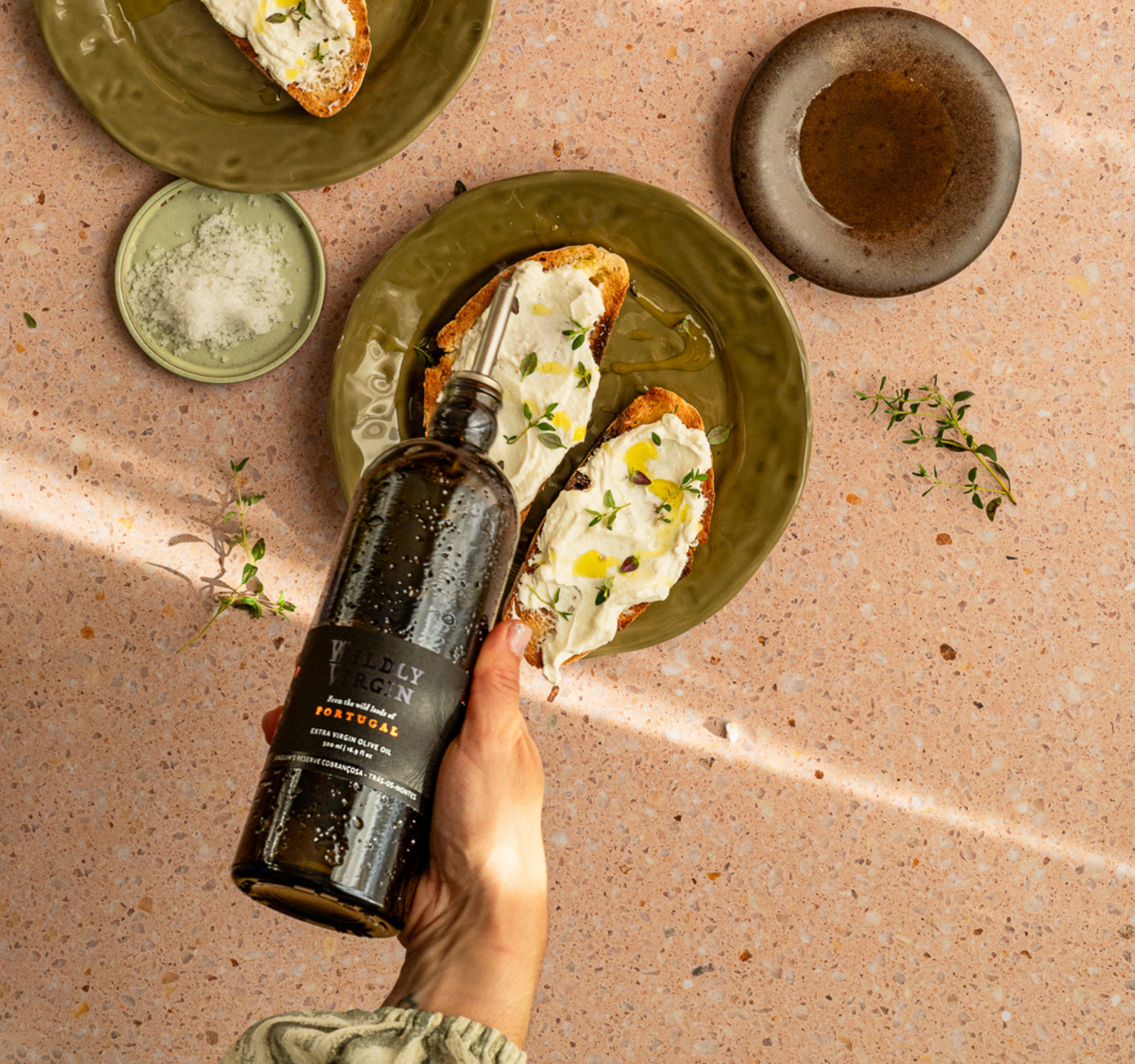Have you ever felt lost in the olive oil aisle, bombarded by terms like "extra virgin," "pure," and "light"? You're not alone. Many shoppers struggle to decipher olive oil labels, often unsure if they're getting what they pay for. Sadly, the olive oil industry is rife with misinformation and even fraud, making it difficult to find truly high-quality oil.
This guide will demystify olive oil grades, empowering you to make informed choices and savor the true taste of authentic extra virgin olive oil. We'll explore the different categories, explain what those confusing labels actually mean, and equip you with the knowledge to spot the real deal.
Understanding Olive Oil Grades
Olive oil grades are established by international bodies like the International Olive Council (IOC) and, in the United States, by the USDA. These standards help ensure quality and consistency, though as we'll see, challenges remain.

As you can see in our visual guide, it's a journey from the raw olives to the final product. Let's break down each level:
Extra Virgin Olive Oil (EVOO): The Gold Standard (Dark Green in the Guide)
EVOO is the highest quality grade, coming from the first press of the olives. To earn this label, it must be made through cold extraction, without heat or chemicals, and meet strict standards for flavor, aroma, and chemical composition.
EVOO must have an acidity level of no more than 0.8% and a flawless sensory profile—meaning no defects in taste or smell. This is the gold standard—fresh, vibrant, and packed with polyphenols that give it both flavor and health benefits.
At Wildly Virgin, we hold our EVOO to an even stricter standard, with a maximum acidity of 0.2%, ensuring exceptional quality and freshness.
Virgin Olive Oil: A Step Below, but Still Natural (Light Green in the Guide)
Also from the first press, virgin olive oil has a higher acidity (up to 2%) and has minor defect. While still natural, it lacks the intense flavor and health benefits of EVOO. In our opinion this is only good for deep frying.
Lampante Olive Oil: Unfit for Consumption (Orange in the Guide)
Lampante oil is a virgin olive oil that has high acidity and serious defects, making it unfit for human consumption. It must go through a refining process before it can be sold as edible oil.
Pomace Olive Oil: The Bottom of the Barrel
Pomace oil is extracted from leftover olive pulp using solvents. It’s heavily refined using heat and chemicals to remove the serious defects and you're left with an oil that lacks the health benefits of real olive oil. It is typically labeled “Olive Pomace Oil” and is often used in food service but is not recommended for home use. This is the lowest grade of olive oil and should be avoided.
Understanding Labeling Terms
Terms like "Pure" and "Light" can be misleading:
"Pure Olive Oil": This is typically refined olive oil blended with some virgin olive oil for flavor. It lacks the robust flavor and health benefits of EVOO. Far from pure!
"Light Olive Oil": This doesn't refer to calorie content! It simply means the oil has a lighter flavor due to the refining process. The calorie count is the same as other olive oils.
Why Choose Extra Virgin?
EVOO isn’t just about taste—it’s about preserving the integrity of the olive. When you choose high-quality extra virgin olive oil, you’re getting:
- Uncompromising flavor—fresh, peppery, and complex.
- Powerful health benefits, packed with antioxidants and polyphenols.
- A connection to tradition, supporting small growers who preserve authentic olive oil craftsmanship.
At Wildly Virgin, we champion small-scale growers who produce truly exceptional extra virgin olive oil, preserving the artistry and authenticity of this ancient craft. Because when it comes to olive oil, quality isn’t just a detail—it’s everything. For a deeper dive, check out our Complete Guide to Selecting Quality Olive Oil
The Olive Oil Industry: A Closer Look
The olive oil industry, while producing a wonderful and healthy product, is not without its issues. Fraud and mislabeling are unfortunately common. To become a truly informed consumer and understand the complexities of the olive oil market, including the risk of fraud, Tom Mueller's book Extra Virginity is an eye-opening read. It sheds light on the challenges in ensuring quality and authenticity.




